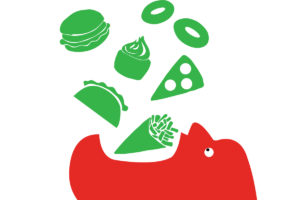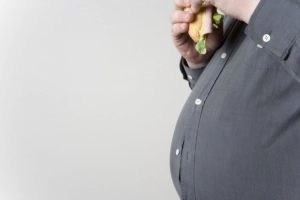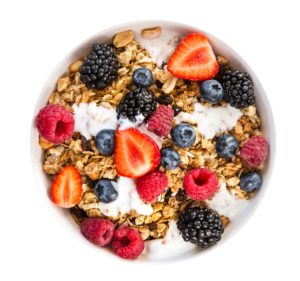Eating Disorders/Disordered Eating
Weight-Neutral Nutrition Conversations
Weight-neutral approaches emphasize health behaviors rather than scale outcomes, gaining traction as professionals seek more inclusive frameworks. This perspective shifts focus toward energy, strength, and function rather than weight change…
Ultra-Processed Foods: Evolving Definitions
Ultra-processed foods are frequently discussed as a category to avoid, yet definitions and applications continue to evolve. The NOVA classification system has driven much of the conversation, but research increasingly…
Why yo-yo dieting is the toxic diet culture we need to be worried about
Maintaining a healthy weight is important. But yo-yo dieting has detrimental effects and is not the answer.
Decoding and Dismissing Diet Culture: A Call to Action
What is a “diet culture” and why is it so bad for us? Read how to combat the toxic diet culture in our society.
Behavioral Disorders and Excessive Sugar
People with a genetic predisposition to behavioral disorders had a greater risk of developing them if their diets were high in added sugars.
Eating Disorder Hospitalizations
A cohort study shows inpatient hospital stays for people with an eating disorder has been on the upswing during the COVID-19 pandemic.
How to Stop Hedonic Eating
Researchers have identified another way that working up a sweat could help trim the waistline: Exercise can put the brakes on hedonic eating.
Unhealthy Eating Habits From the Pandemic
By probing into how the pandemic affected eating behaviors in young adults, investigators revealed links to six unhealthy eating habits.
Eating Fast Linked to Higher BMI
In today’s fast-paced world, many are guilty of eating fast. But failing to slow down could be one reason why Americans are gaining weight.
Overeating With Digital Distractions
Stuffing in food while doing something perceptually demanding makes it more difficult to notice fullness, potentially leading to overeating.
Picky Eating Habits in Children
An investigation published in Pediatrics found that requiring children to eat and restricting certain foods were tied to more picky eating habits.
Word of the Day: Drunkorexia
People with drunkorexia adopt disordered patterns of eating, such as skipping meals or purging, to offset the negative effects of consuming excess alcohol.
Fast Food Nation
Researchers assessed the nutritional quality of food and found that 70% of meals procured at fast-food and casual joints had poor nutritional value.
Can Digital Multitasking Increase Overeating?
You may want to review your digital device usage. New research shows that people who mindlessly switch between a smartphone and a tablet or other digital devices are likely to have an increased susceptibility to food temptations and lack of self-control, potentially leading to weight gain. Researchers from three American universities conducted the inquiry to examine whether links exist between obesity and use of digital devices.
Ditching the Diet Mentality
Did you know that dieting is ineffective at best and counterproductive at worse, with up to two-thirds of dieters regaining more weight than they lose (Mann et al. 2007)? Isn’t there a better way to eat healthfully?
One option is intuitive eating, which forgoes dieting and focuses on driving long-term improvements in your relationship with food. “Intuitive eating is the ability to read, interpret and follow your internal cues regarding the right amount of food for your body,” says Krista Scott-Dixon, PhD, curriculum director at Precision Nutrition.
Weight Gain Is Bad News for Our Gustatory Mojo
Studies have shown that people with obesity have a blunted sense of taste, so they have to eat more richly flavored foods (more sugary and higher in fat) to glean as much sensory satisfaction from a meal as their leaner peers. This could help in understanding why heavier people have a hard time losing weight.
An Action Plan to Combat Adolescent Obesity
Health and fitness professionals can drive positive outcomes and minimize the risk adolescent obesity with these five “rules” for coaching.
Keto—Fat Chance of Performing Better
The ketogenic diet, a fat-forward meal plan that limits followers to about 20 grams of daily carbs, may help some people shed a little weight (in the short term), but it might not be good news for their athletic pursuits.
Portion Distortion
No wonder social media feeds are packed with pictures of overflowing smoothie bowls: It appears people feel the types of foods they consume play a bigger role in their health goals than the volume they eat. As a result, a study from Vanderbilt University published in Management Science suggests that those who are trying to maintain a healthy body weight or wishing to shed a few pounds might be prone to overeating “healthy” items like nuts, granola and avocados. The upshot: The public should be educated about practicing portion control—for foods of all kinds.
Exercise and the Gut Microbiome
New research suggests that endurance exercise positively affects the gut microbiome, but only for lean individuals and only for as long as exercise continues. Researchers at the University of Illinois at Urbana-Champaign conducted the study with 32 sedentary men and women—some lean, some obese. The purpose was to explore the impact of endurance exercise on the composition, functional capacity and metabolic output of gut microbiota. Investigators collected samples from the subjects before and after 6 weeks of exercise, then after 6 weeks of no exercise.


















